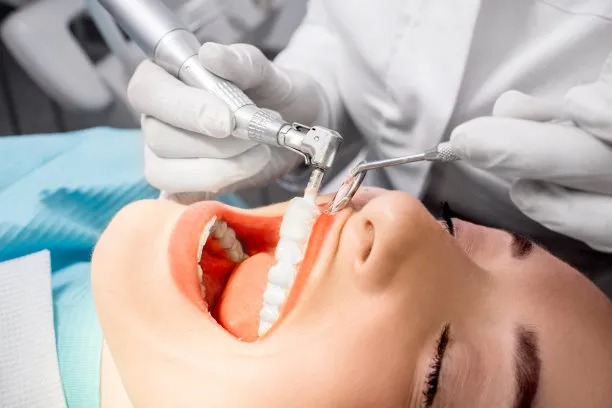Essential Precautions to Ensure Safe and Effective Root Canal Treatment for Optimal Dental Health and Patient Wellness
Summary: Root canal treatment is a vital procedure aimed at preserving natural teeth and improving dental health. Ensuring safety and effectiveness during this treatment is crucial not only for achieving optimal dental health but also for enhancing overall patient wellness. This article discusses essential precautions that should be taken during root canal treatments, focusing on proper sterilization techniques, patient communication, monitoring of vital signs, and thorough follow-up care. By understanding and implementing these precautions, dental professionals can significantly increase the success rate of root canal treatments and help patients have a more positive experience.
1. Importance of Sterilization Techniques

Sterilization is a fundamental step in ensuring safe root canal treatment. A well-sterilized environment minimizes the risk of infections during and after the procedure. Dental professionals should consistently use autoclaves and sterilization equipment to disinfect all tools and instruments used in the treatment.
Additionally, maintaining a clean treatment area is imperative. This includes the thorough cleaning of chairs, surfaces, and equipment before and after every procedure. A properly sterilized environment not only protects patients from harmful bacteria but also reassures them about their safety and comfort throughout the process.
Furthermore, practitioners should consider using single-use disposable products whenever possible. This drastically reduces the risk of cross-contamination, which is vital in a procedure that involves sensitive areas like the tooths pulp chamber. By prioritizing sterilization, dental professionals ensure the effectiveness of root canal treatments while safeguarding patient health.
2. Effective Patient Communication Strategies
Clear and open communication between dental professionals and patients is key to a positive treatment experience. Before the procedure, dentists should explain the root canal process in understandable terms, addressing any fears or misconceptions that patients may have. This helps in building trust and comfort, allowing patients to feel more secure during the treatment.
It is also essential to discuss the expected outcomes, possible risks, and aftercare procedures. Patients who are well-informed are more likely to adhere to post-treatment care instructions, which is crucial for successful recovery. This kind of proactive communication fosters a collaborative effort in maintaining the patients dental health.
Moreover, dentists should encourage patients to voice any concerns or symptoms they experience during the treatment. This real-time feedback enables practitioners to make immediate adjustments, ensuring a more comfortable and effective procedure. Ultimately, strong communication enhances the patients overall experience and encourages their willingness to return for future dental care.
3. Vital Sign Monitoring During Treatment
Monitoring vital signs during root canal treatment is an essential precaution that ensures patient safety. This involves keeping track of the patient’s heart rate, blood pressure, and oxygen saturation levels. By monitoring these signs, dental professionals can quickly identify any distress or complications that may arise during the procedure.
Using electronic monitors can streamline this process, allowing practitioners to focus on the procedure while ensuring the patient’s vitals are stable. If any irregularities are observed, immediate action can be taken, whether that involves adjusting anesthesia or pausing the procedure for further assessment.
Furthermore, comprehensive monitoring also extends to patients with pre-existing medical conditions. Such patients might require additional attention and specific strategies to manage their health during the procedure, underscoring the importance of individualized care in enhancing treatment safety and effectiveness.
4. Importance of Thorough Follow-Up Care
Follow-up care after root canal treatment is critical for ensuring optimal healing and success. Patients should be provided with clear instructions on post-treatment care, including pain management and signs of potential complications. This information empowers patients to take charge of their healing process.
Regular follow-up appointments should be scheduled to assess healing and address any concerns patients may have. These appointments enable dental professionals to monitor the treated area and confirm that the infection is cleared and the tooth is healing properly.
Additionally, encouraging patients to maintain good oral hygiene habits and attend routine check-ups can significantly enhance long-term dental health. A strong follow-up regime not only facilitates recovery but also fosters ongoing patient engagement, leading to better outcomes in dental health overall.
Summary:
In conclusion, ensuring safe and effective root canal treatment involves a multi-faceted approach that includes proper sterilization, effective communication, vigilant monitoring, and thorough follow-up care. By adhering to these essential precautions, dental professionals can greatly enhance patient wellness and optimize outcomes in root canal procedures.
This article is compiled by Vickong Dental and the content is for reference only



